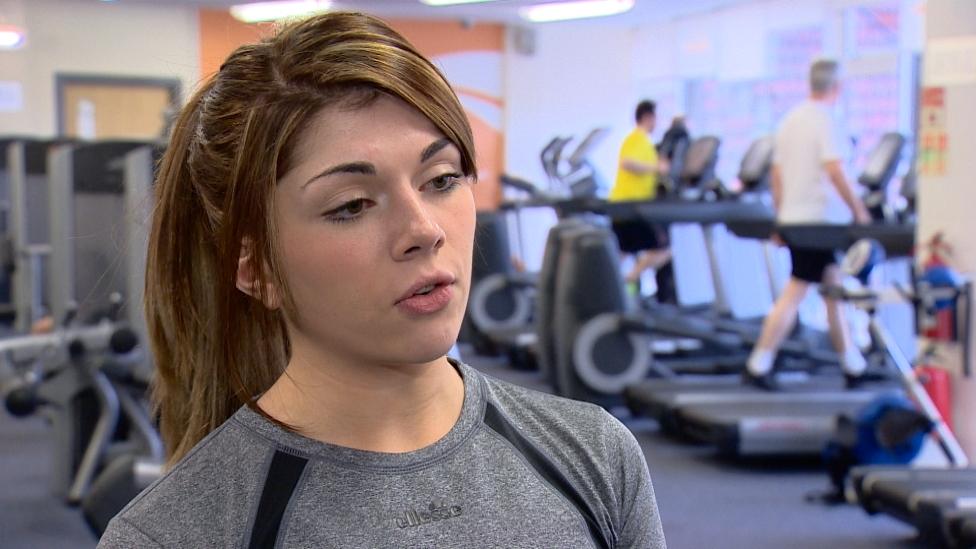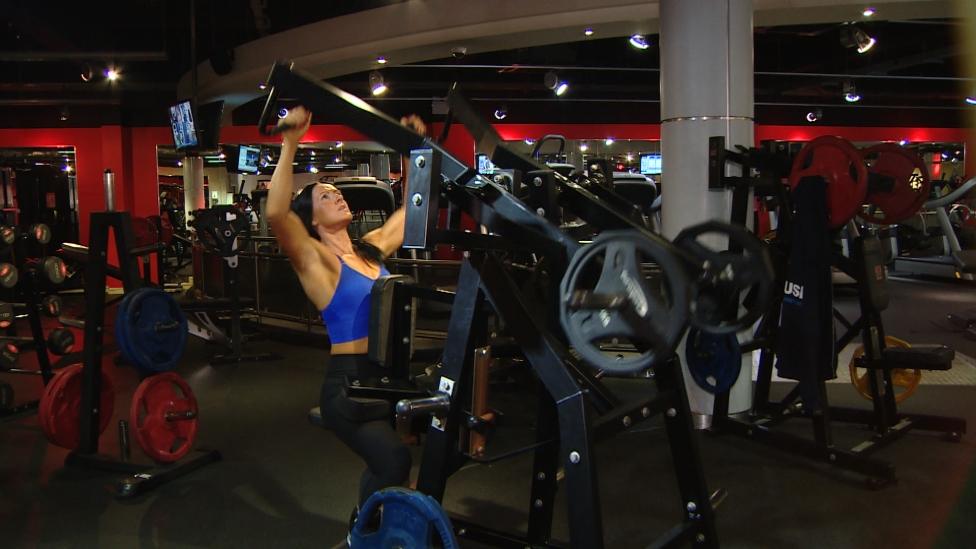Is your diet and exercise regime doing more harm than good?
- Published
Excessive exercise regimes, restrictive diets, sports supplements... how far is too far in pursuit of the achieving the ideal body type
A growing number of Scots are taking sports supplements, restricting their diets and exercising to extremes in pursuit of muscles. But how far is too far in pursuit of a dream body?
Eighteen-year-old Chelsea might look like the picture of health but the pressure she feels to appear fit and toned has taken its toll - both physically and mentally.
Her high-protein, low-carb diet - mixed with protein shakes and diet pills - landed her in hospital with kidney failure right in the middle of her exams.
She was in her fifth year of secondary school, with what many would see as an enviable body shape, when she was diagnosed with anorexia and an addiction to exercise.
Her goal was not just to be as thin as possible but to have sculpted and defined muscles.

Chelsea was admitted to hospital through her high protein diet
She said: "I think there's a lot of more pressure to be toned instead of skinny. It's something that you can see men becoming increasingly affected by.
"I was only 16 but I started out thinking what I was doing was very healthy.
"I read up on what was healthy, and went on a very low calorie diet and exercised for hours each day
"I was admitted to hospital because I'd put so much pressure on my kidneys with my high-protein diet.
"I thought that I was doing something really healthy but it was the extent that I'd done it to that had caused the damage"


Experts agree that people who follow extreme fitness plans can harm themselves mentally too.
They say that the physical and mental effects associated with over-exercising and restrictive dieting are enormous.
Often people who suffer from these type of disorders do not end up in mental health services unless it results in another problem.
Dr Jane Morris, who specialises in eating disorders, said that many of her patients did not look how we would often expect people with an eating disorder to look.
For many patients, being thin is no longer the aim. She said: "They share the terrible fear of fatness. But instead of looking for a body that is purely emaciated they are looking instead for one that's very toned and very shapely."
Kerrie Donaghy - an ex-bodybuilder who is now a representative of USN, a firm that sells sports supplements - agrees that there is no quick fix or fast track for a fit body and a healthy mind.
She said: "People don't understand what they're used for. You shouldn't expect to get results from a tub of protein.
"Body image expectations have changed a lot in the last few years. People are under pressure to look lean and ripped like someone who has trained really hard for a long time.
"That pressure is on - big time. Looking fitter is about eating lots of good food, training really effectively, taking rests - that will help with your overall mental health and how you look as a person.
She says: "The hard work has to be done in the kitchen and the gym. Looking fit is about being fit."